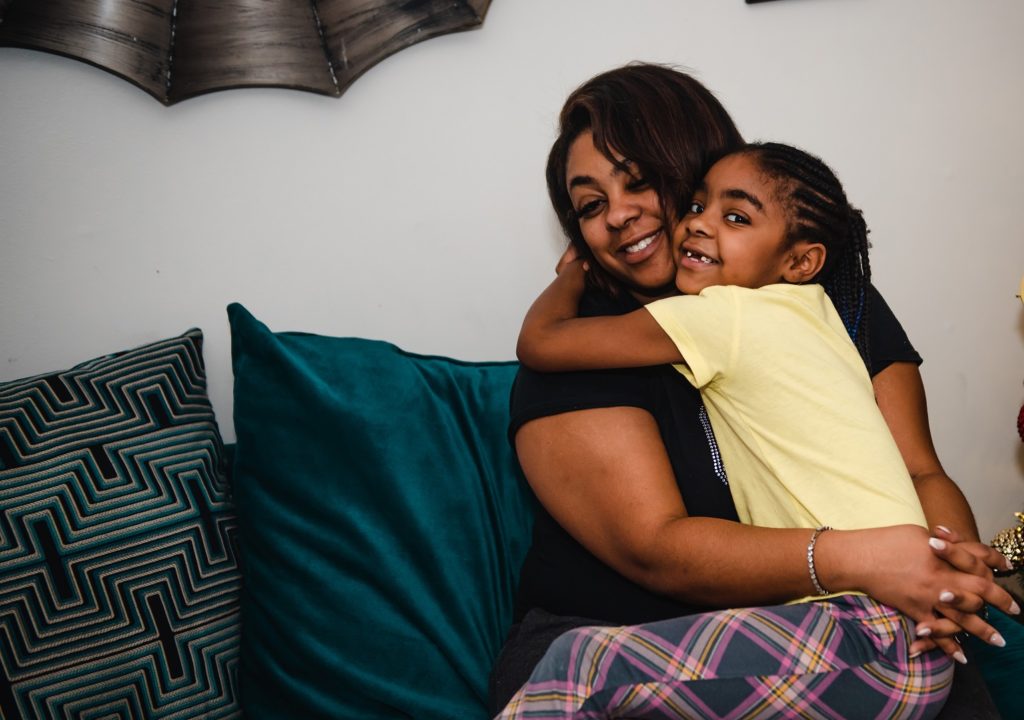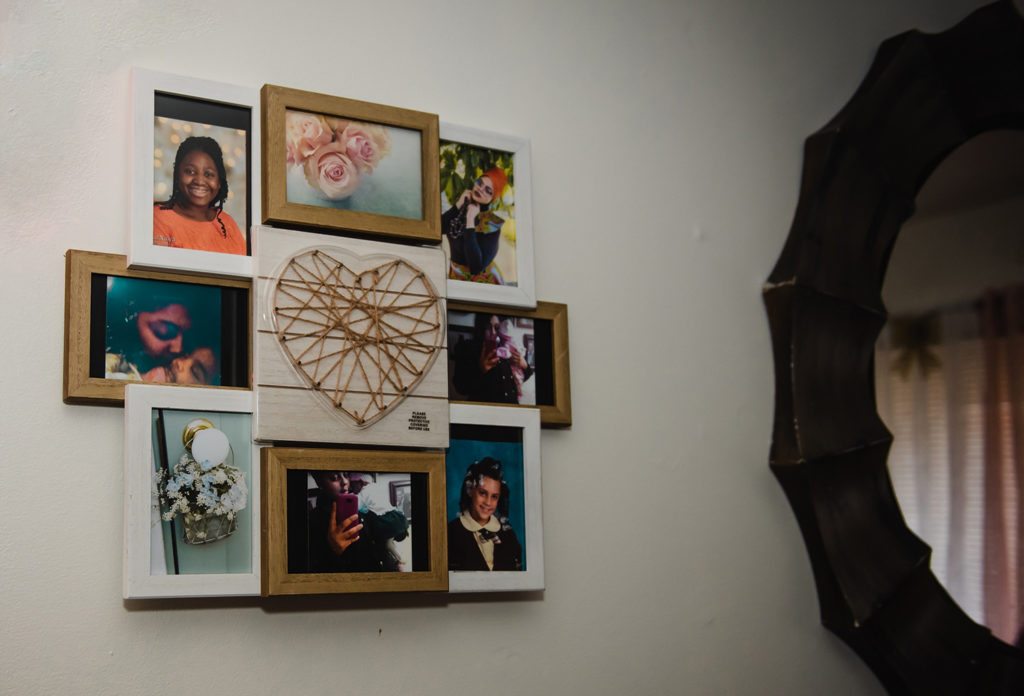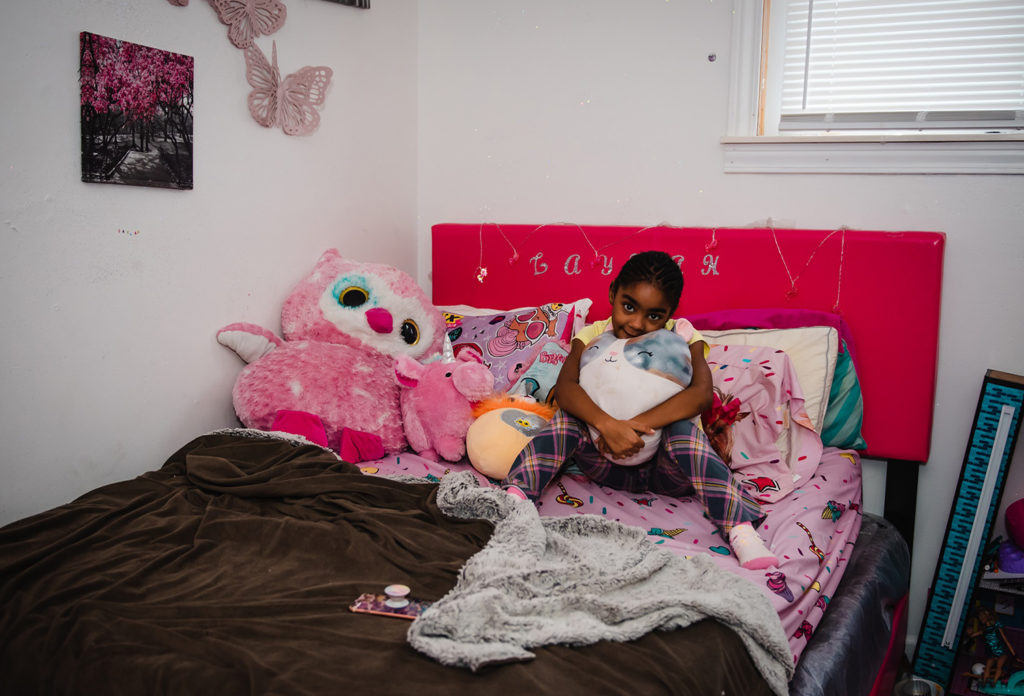A lifeline: 2-1-1 connects caller to help and hope
Published on January 27, 2023 in Basic Needs

Shameika Robertson was living in her car with her 2-year-old daughter when she saw a flier for United Way for Southeastern Michigan’s 2-1-1 helpline.
“I knew we couldn’t continue for much longer in that situation,” Shameika said. She dialed 2-1-1 hoping to be connected to low-income housing.
Last year, with the support of individuals and longtime partners like the UAW, United Way was able to answer nearly 250,000 requests for help through its 2-1-1 helpline, which is available 24/7, 365 days a year. The organization’s impact also stretched into literacy, education and other needs, providing more than 60,000 books to Metro Detroit students and funding programs that connected more than 800,000 people with food assistance.
“United Way is the glue that connects the people to the resources,” said Tiffany Bush, Labor Participation Director at United Way for Southeastern Michigan. “We’re only able to play that critical role because of local UAW members and other supporters who dedicate time and give regularly to help people in need.”
POWERED BY BELIEF
Shameika’s call was answered by one of United Way’s Community Care Advocates. The advocate used 2-1-1’s directory of more than 27,000 resources to provide Shameika with referral information to find an open bed. Anyone can access the directory to find all kinds of help, right in their community.
“I wasn’t even thinking about a shelter. I just knew we needed to get off the street,” Shameika said. “My daughter needed a roof over her head. She needed a bed.”
Eventually, she was connected to COTS, a community organization focused on housing and funded by United Way. That connection would change the trajectory of her life.
“No one thinks about going to a shelter as being the best thing that happened to them but in my case, it kind of was,” she said. “It wasn’t always easy – you’re sharing a small space with other people in crisis – but it still allowed me to feel hopeful.”
Birthdays and holidays were difficult, yet Shameika said her time at COTS was the first time she felt truly supported.
They believed in me,” she said. “It forced me to believe in myself.
She enrolled in the organization’s Passport to Self Sufficiency Program (PTS) – a research based transformative strategy of coaching and mentoring designed to create poverty resistant families. PTS focuses on key areas of long-term success including housing and family stability, economic mobility and empowerment, health and well-being, education and job training, and employment and career development.
MANIFESTING CHANGE


The real change in Shameika’s life started with a simple call.
“When someone calls 2-1-1 for help, we always look at the bigger picture to gain an understanding of the household and the challenges they face,” said Tasha Ball, 2-1-1 operations director at United Way for Southeastern Michigan. “We provide direct service through our utility assistance programs and our teams work hand-in-hand with our partners for things like employment assistance or basic needs. We’re compassionate. We ask a lot of questions and use that information to make strategic referrals.”
“I was absolutely mind blown that there were so many programs available to me,” Shameika said.
In the years since her time living in the shelter, Shameika has remained active in the PTS program – attending monthly meetings, setting goals and creating new habits.
“I could always get a house, but I could never keep it. The rent and bills would pile up and eventually I’d end up evicted. It’s not like that anymore.”
At the Inkster home she now shares with her daughter, she envisions a craft room for the girl and a quiet place for her to relax and focus on the future.
She pulls down from a closet shelf a vision board she created.
Rubbing her hands across the board’s carefully chosen photos – a truck, a modest home, words of affirmation – she’s tearful, yet optimistic.
“When I was growing up, my family told me that no one would care about me. This experience proved them wrong. Along the way people have reached back for me and provided steppingstones for my future. You can’t put a price on that.”
She still calls 2-1-1 on occasion to be connected to resources. “Sometimes it’s just a question about something but I know they’ll always answer, and they’ll always hook me up.”
To learn more about 2-1-1 or be connected to resources, visit unitedwaysem.org/get-help.